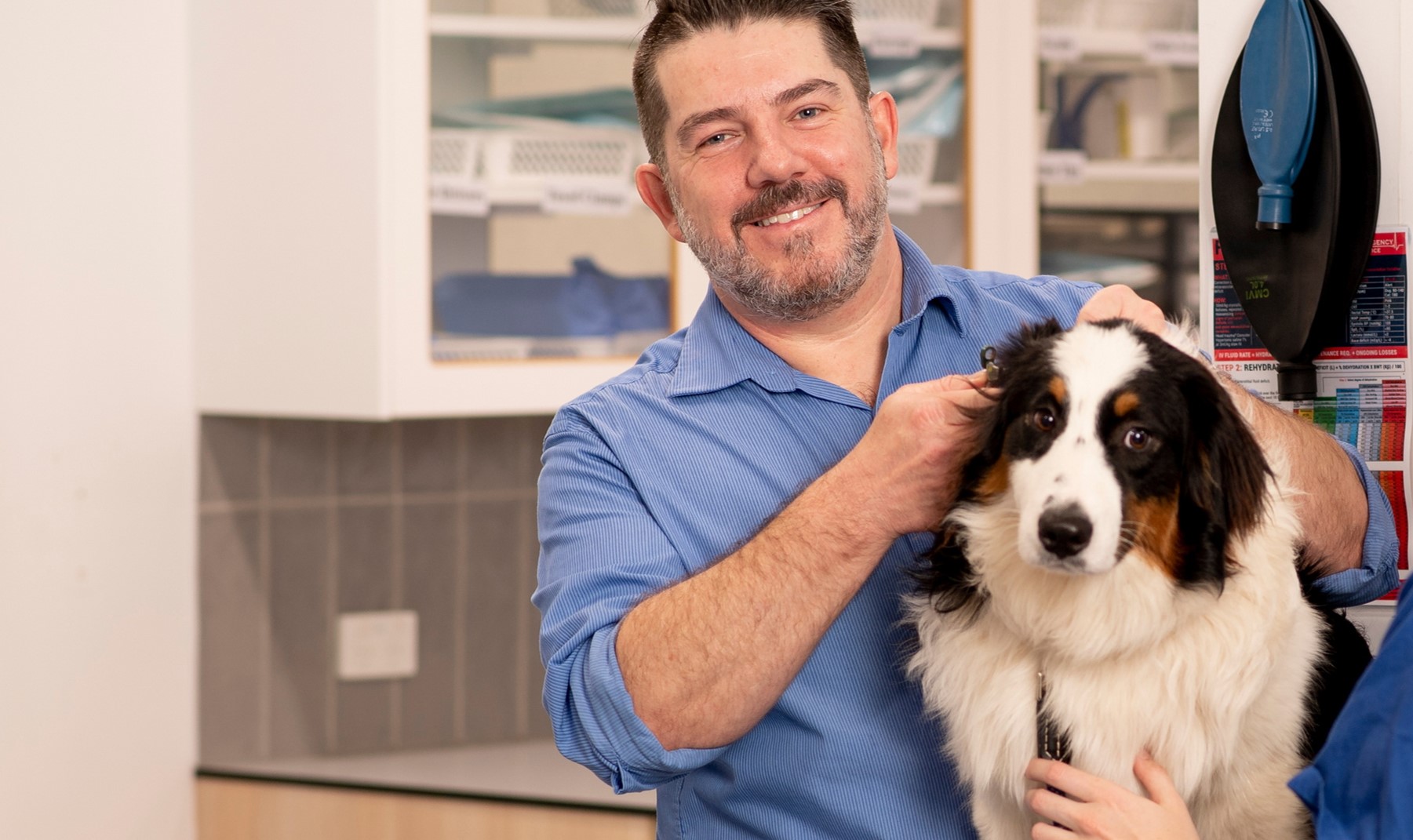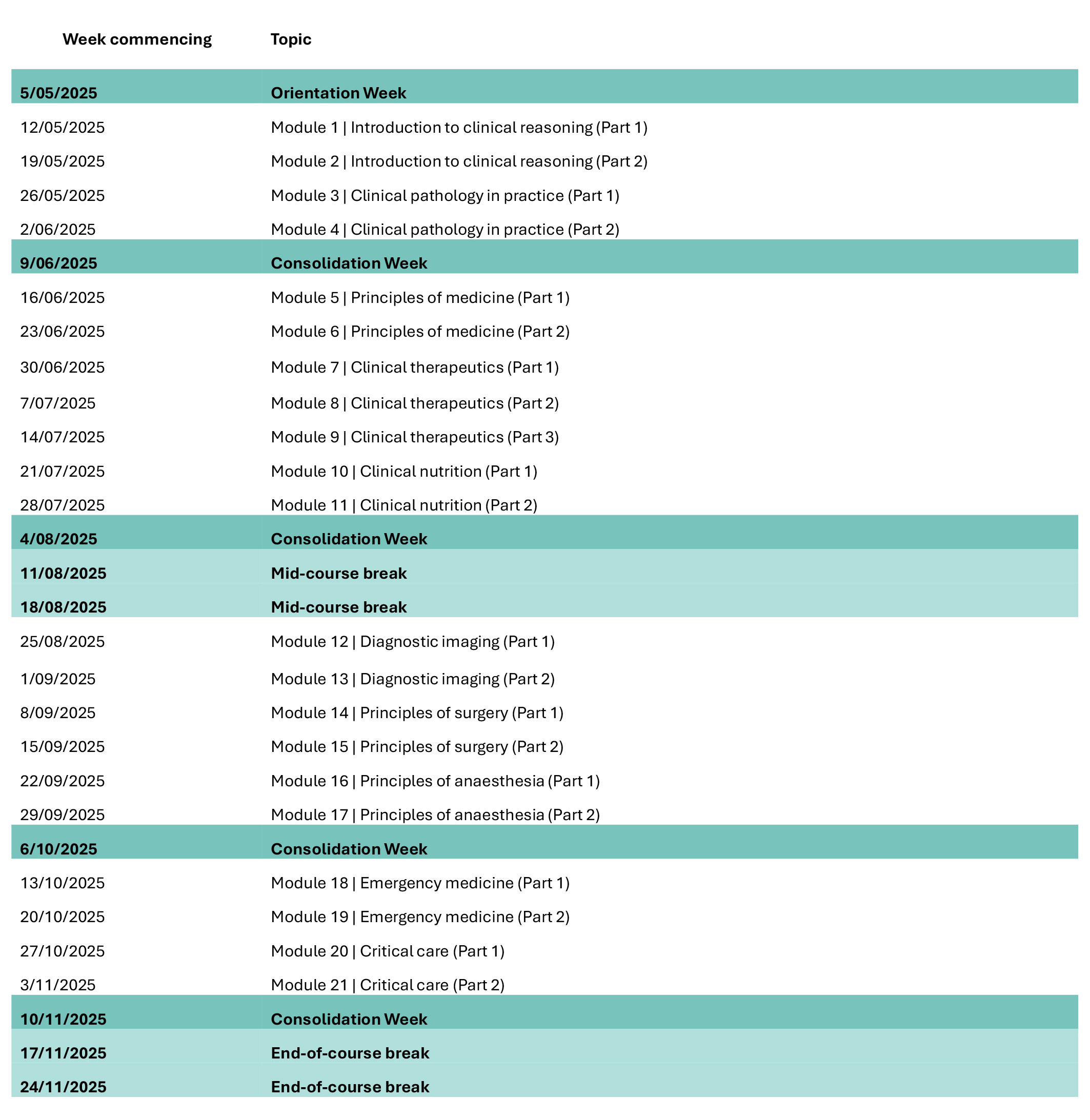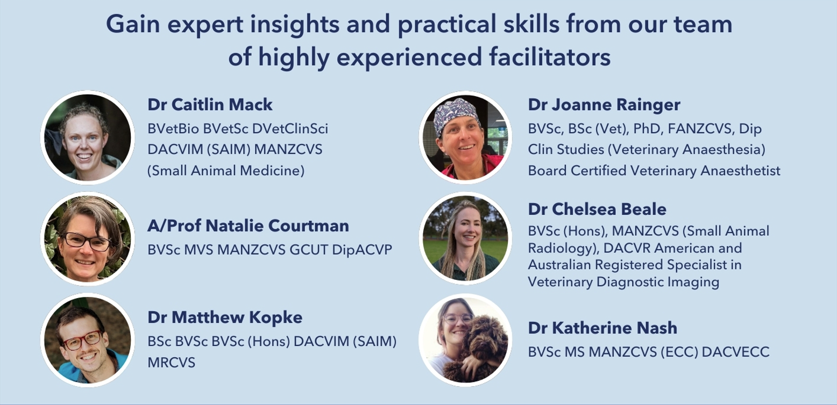Essential Veterinary Clinical Skills



Course Summary
The aim of this course is to improve and solidify general practitioner’s case management abilities through advancing their knowledge, confidence and critical thinking skills used for the approach to disease diagnosis, management, and treatment in common medical, surgical and emergency small animal presentations.
Advanced training in the foundational clinical skills required for high quality small animal veterinary general practice with a focus on practical and applied aspects of disease diagnosis, disease treatment and anaesthesia and emergency care is delivered across 21 modules of expertly curated evidence-based content. This course will suit veterinary graduates with a minimum of 3 years clinical experience as basic theory will be considered assumed knowledge.
Diagnostic skills covered include clinical reasoning, clinical pathology and diagnostic imaging relevant to the small animal veterinary practitioner with case-based pathophysiology, diagnostic plans and core practical skills emphasised. Therapeutic skills covered include core principles of medicine and surgery, pharmacology, nutrition, and euthanasia and palliative care relevant to the small animal veterinary practitioner with case-based diagnostic and treatment plans emphasised along with core surgical principles. Anaesthesia and emergency care skills covered include core principles of anaesthesia and emergency care as well as more advanced skills in fluid therapy, emergency patient assessment, triage and management. Case-based diagnostic and treatment plans in the emergency room will be emphasised along with core pain management and anaesthesia skills.
This course supports a collaborative student-centred (versus teacher-led) learning approach, enabling vets at different career stages, knowledge and skills, to leverage their unique experiences and set their own learning path within each topic. Students will complete the course with a cohort of like-minded professionals, engaging with self-paced learning (aligned to scheduled teaching weeks), and interactive Zoom sessions with colleagues and facilitators. Each module of evidence-based content has been developed with the busy general practitioner in mind and will require between 6 – 8 hours of engagement per module. Students will engage with mini-lectures and learning activities, such as real-world case studies, simulations, reflection, and readings, to consolidate and apply their learning. Active participation in module discussions forums is encouraged, providing opportunities for supported group learning and community building.
Gain expert insights and practical skills from our team of highly experienced facilitators
But don’t just take our word for it — hear what our students are saying!
"I really enjoyed the content. It was interesting and relevant. I was able to apply the knowledge immediately in my everyday practice."
"It was hard work, but rewarding to have upgraded my skills to tackle challenging patients."
"A great opportunity to interact with the instructors and colleagues."
Student reflections from our latest cohort, based on anonymous feedback collected at the end of the course.
After successfully completing this course, you should be able to:
- Demonstrate a logical problem-based approach to clinical reasoning in the development of an appropriate diagnostic, therapeutic and monitoring plan for common and more complex medical, surgical, and emergency presentations.
- Identify cases that would benefit from or require care beyond that offered at the veterinarian's hospital and collate appropriate documentation for referral.
- Select and explain the theory behind appropriate diagnostic and procedural techniques for certain case scenarios and utilise this knowledge in management of day-to-day caseloads.
- Integrate and apply core principles of medicine, surgery and emergency are to your clinical caseload to demonstrate the provision of quality care.
Key Features of the Course
- Leverage Current Knowledge & Skills: The course structure enables you to connect your current experience with new content, making learning relevant and applicable.
- Peer Learning: Benefit from the varied experiences and insights of your peers, enhancing both your understanding and practical skills.
- Expert Facilitation: Each module is facilitated by subject matter experts who guide you through complex concepts and encourage discussion to deepen your understanding.
- Deep Dive Sections: For those who wish to explore a particular topic in more detail, we offer deep dive sections. These allow you to explore more in-depth content tailored to your interests or specific needs.
- Practical Assessments: Assessment is focused on the practical application of the evidence-based content. Case studies are drawn from real-life scenarios in small animal general practice, ensuring that you can directly apply what you’ve learned in your daily work.
- Interactive Zoom Sessions: You'll participate in interactive Zoom sessions (up to 20 hours across the course), where you can engage directly with both peers and facilitators. These sessions foster a dynamic learning environment that encourages collaboration, discussion, and knowledge sharing.
- Supported Learning Environment: We’re committed to providing a supportive environment where every participant feels empowered to get the most out of their learning. Whether it’s through additional resources, peer support, or facilitator guidance, we ensure that you have everything you need to succeed.
By the end of the course, you will not only have gained valuable knowledge from expert-led sessions, but also practical insights from your peers, all of which you can implement in your daily practice to enhance the care and treatment of small animals in general practice.
All AVA CVP Online courses are designed using key adult learning principles to ensure that veterinary professionals can engage with content that is both relevant and challenging. The goal is to allow participants to leverage their existing knowledge and skills as they explore new, relevant content that piques their interest and enhances their practice.
The learning experience is centred around self-paced study and peer collaboration, within a set delivery schedule with a cohort. You will have the opportunity to engage with colleagues from diverse backgrounds (small animal and mixed-practice) and experiences (associate vets to clinic owners; 3 – 40 years vet experience; metropolitan, regional, and remote practice) enriching the learning environment. Facilitated by subject matter experts, each interactive session ensures a comprehensive exploration of real-world applications, offering valuable insights into the latest practices in small animal general practice.
Veterinarians registered to practice in Australia who are:
- seeking to advance their general practice training and skills
- aiming to enhance their professional credentials and job prospects.
- committed to personal growth and career sustainability in the profession.
This course may be studied as a stand-alone CPD offering. Successful completion of this course may also be credited toward the AVA Chartered Veterinary Practitioner® professional accreditation (terms and conditions apply).

All course registration prices are GST inclusive.


